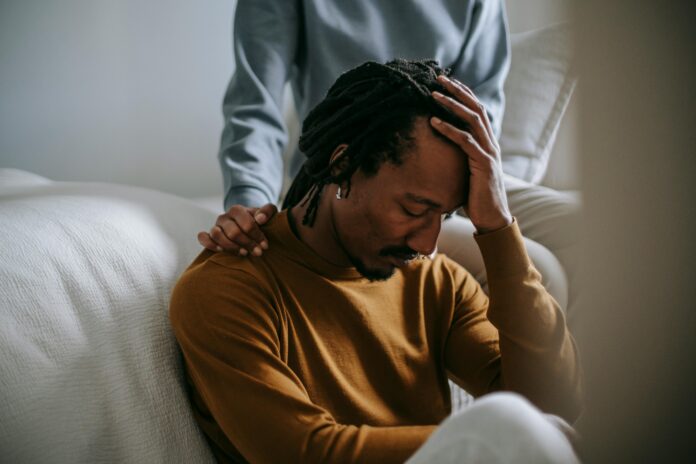Anorgasmia, defined as the persistent difficulty or inability to achieve orgasm despite adequate sexual stimulation and arousal, affects both men and women.
Although it is less commonly discussed in men, anorgasmia can lead to significant distress, relationship problems, and a decrease in quality of life. Understanding anorgasmia in men, its causes, and potential remedies is crucial for those affected and their partners.
Understanding Anorgasmia in Men
Anorgasmia in men, also known as male orgasmic disorder, can be classified into several types. Primary anorgasmia occurs when a man has never experienced an orgasm. In contrast, secondary anorgasmia refers to situations where a man has previously experienced orgasms but is currently unable to do so. Situational anorgasmia happens when a man can achieve orgasm only under certain circumstances or with specific types of stimulation. Generalized anorgasmia, on the other hand, occurs when a man is unable to achieve orgasm under any circumstances.
Causes of Anorgasmia in Men
The causes of anorgasmia in men can be multifaceted, involving psychological, physical, and lifestyle-related factors. Psychological causes are often significant contributors. High levels of stress and anxiety can interfere with the sexual response cycle, making it challenging to achieve orgasm. Depression is another psychological factor that can reduce sexual desire and lead to difficulties in reaching orgasm. Relationship issues, such as lack of communication, emotional distance, or unresolved conflicts, can also contribute to anorgasmia. Performance anxiety, where a man worries excessively about his sexual performance, can create a mental barrier to achieving orgasm.
Physical causes can also play a critical role in anorgasmia. Nerve damage, resulting from conditions like diabetes, multiple sclerosis, or spinal cord injuries, can impede the ability to achieve orgasm. Hormonal imbalances, such as low levels of testosterone, can also impact sexual function. Certain medications, including antidepressants (SSRIs), antipsychotics, and blood pressure medications, can have side effects that include anorgasmia. Additionally, excessive use of alcohol, recreational drugs, or certain prescription medications can impair sexual function.
Lifestyle factors can further exacerbate anorgasmia. Sedentary lifestyles contribute to poor sexual health, while poor nutrition can affect overall health and sexual function. Inadequate or poor-quality sleep can negatively impact sexual health, and a lack of physical activity can diminish overall energy levels, affecting sexual performance.
Potential Remedies for Anorgasmia in Men
Addressing anorgasmia in men typically involves a combination of medical treatments, psychological counseling, and lifestyle changes. Medical treatments may include adjusting medications if anorgasmia is related to their side effects. A healthcare provider might change the dosage or prescribe alternative medications. For men with hormonal imbalances, hormone replacement therapy can help restore normal sexual function. Managing chronic conditions like diabetes or nerve disorders is also essential in improving sexual function.
Psychological counseling is another critical component of treatment. Sex therapy can address psychological barriers to orgasm, such as anxiety, depression, or relationship issues. Cognitive-behavioral therapy (CBT) can help reframe negative thoughts and reduce performance anxiety, while couples counseling can improve communication and intimacy between partners, potentially resolving anorgasmia.
Lifestyle changes play a significant role in remedying anorgasmia. Regular exercise enhances overall health and can improve sexual function. A balanced diet rich in essential nutrients supports overall well-being and sexual health. Ensuring sufficient and quality sleep can improve energy levels and sexual function. Stress management techniques, such as meditation, yoga, and mindfulness, can help reduce stress and anxiety, thereby improving sexual function.
Behavioral techniques can also be beneficial. Masturbation training, where individuals learn more about their own bodies and sexual responses, can help men understand what type of stimulation leads to orgasm. This knowledge can be applied during partnered sexual activities to improve the likelihood of achieving orgasm.
In conclusion,
anorgasmia in men is a complex condition with various psychological, physical, and lifestyle-related causes. However, with a comprehensive approach that includes medical treatments, psychological counseling, lifestyle modifications, and behavioral techniques, men affected by anorgasmia can find effective remedies.















